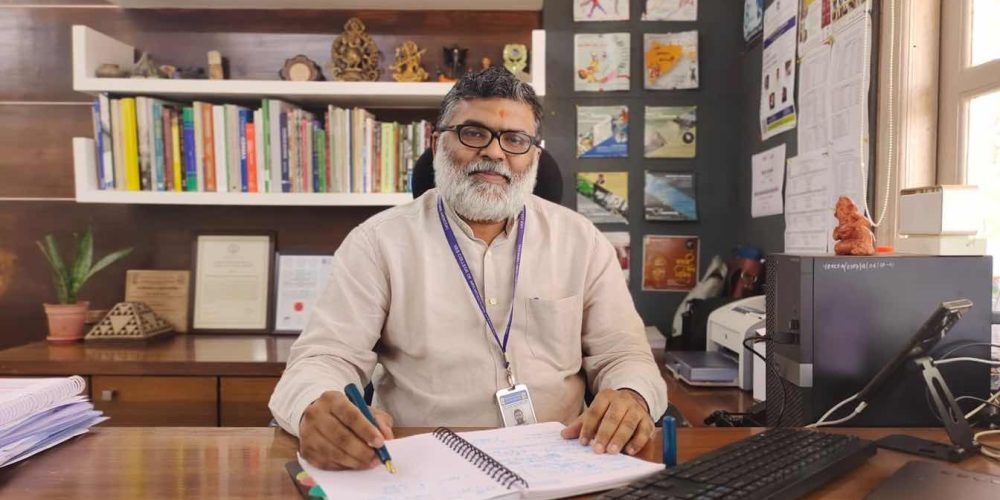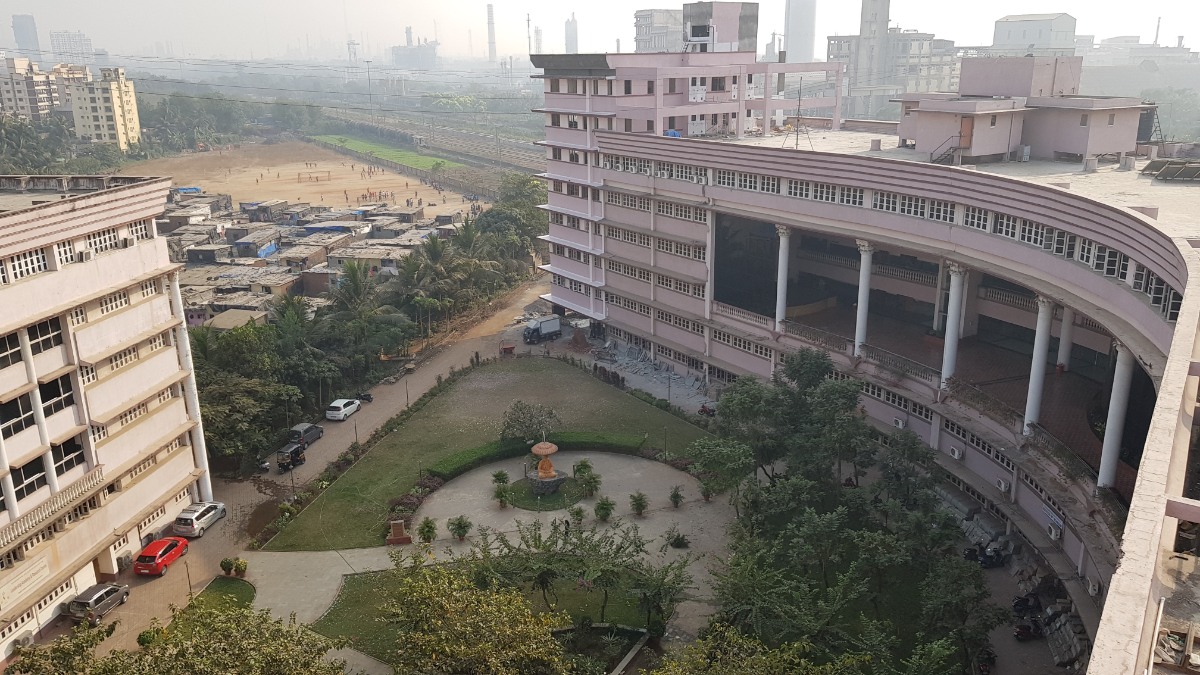As we approach Budget 2025, the education sector looks forward to continued emphasis on advancing higher education, building on the progress made last year. One important focus is enhancing digital infrastructure, particularly in rural areas where over 60% of the population still lacks reliable internet access. This gap is limiting the reach and potential of online education, and without addressing it, we risk leaving a significant portion of the population behind. In addition, strengthening skill-based training programs and encouraging closer collaboration between educational institutions and industries is vital to ensure that our curricula are aligned with the needs of today’s job market. This will better equip students with the skills they need, while also boosting their employability. We are also hopeful that the budget will include policies to encourage international collaborations, which will enhance the global competitiveness of Indian education and attract more international students.
The timely and effective implementation of the National Education Policy (NEP) 2020 is critical for the sector’s growth. Initiatives such as the operationalization of the National Research Foundation (NRF) are key to driving research and innovation. Finally, a fast-track process for patent applications within educational institutions will foster a culture of innovation and contribute to the nation’s overall research and development goals.
Union Budget 2025 Expectations for Education and Skills
As the Union Budget 2025 approaches, experts from diverse sectors eagerly anticipate transformative policies laying strong emphasis on enhancing education and innovation that will shape the future of education, skill development, and the economy. Key recommendations include prioritizing research and intellectual property in higher education, incorporating these areas into Corporate CSR funding, and offering long-term financing options for universities to encourage private investment. Allowing a for-profit model in education and offering collateral-free loans could increase enrollment, especially in a nation with low enrollment numbers. Additionally, increased fiscal allocation for higher education innovation, skill-based learning, and global partnerships is vital to strengthen Indian universities’ global competitiveness.
The startup ecosystem also needs support, with a focus on streamlining regulations, offering tax incentives, and addressing skill gaps in emerging sectors such as AI, IoT, and green technology. Measures to support the middle class, like revising tax slabs and incentivizing investments in transformative sectors, could foster sustainable growth.
The NEP’s goal of achieving a GER of 50% by 2035 calls for greater industry collaboration, skill-based training, and technology investments. The PM Vidyalakshmi scheme could improve access to education, while introducing incentives for Distinguished Skill Universities would help bridge skill gaps and increase employment opportunities. A visionary budget prioritizing these initiatives would strengthen India’s education and economic positioning.
Dr. Prof Anand Achari, Principal, VES College of Architecture stresses the importance of implementing the National Research Foundation (NRF) and promoting patent culture within institutions.
Budget 2025 Expectations Live Updates: From tax reforms to incentivising innovation in AI, what to expect from Nirmala Sitharaman’s speech
India Budget 2025 News Live Updates: As Union Finance Minister gears up to present the Union Budget 2025 on February 1, all eyes are on what she has to offer to the salaried employees, corporates and entrepreneurs.
Union Budget 2025 Expectations Live Updates: As Union Finance Minister gears up to present the Union Budget 2025 on February 1, all eyes are on what she has to offer to the salaried employees, corporates and entrepreneurs. The Budget Session 2025 will kick off on January 31 with President Droupadi Murmu addressing a joint Parliamentary session of both Lok Sabha and Rajya Sabha and will conclude on February 13.
Taxpayers’ expectations: The taxpayers across all economic strata, including the middle class and the corporates, are looking forward to tax reforms in the upcoming Budget announcement by Sitharaman. These include revised income tax slabs, lower GST rates, and various capex allocation announcements.
Digital push: The new-age tech firms are expecting a government’s action to implement digital initiatives that will solidify India’s position as a global technology hub in the decades to come. The startups also hold hopes for government to incentivise innovation in AI and automation within the recruitment sectors.
Union Budget 2025 Expectations for Education and Skills
As the Union Budget 2025 approaches, experts from diverse sectors eagerly anticipate transformative policies laying strong emphasis on enhancing education and innovation that will shape the future of education, skill development, and the economy. Key recommendations include prioritizing research and intellectual property in higher education, incorporating these areas into Corporate CSR funding, and offering long-term financing options for universities to encourage private investment. Allowing a for-profit model in education and offering collateral-free loans could increase enrollment, especially in a nation with low enrollment numbers. Additionally, increased fiscal allocation for higher education innovation, skill-based learning, and global partnerships is vital to strengthen Indian universities’ global competitiveness.
The startup ecosystem also needs support, with a focus on streamlining regulations, offering tax incentives, and addressing skill gaps in emerging sectors such as AI, IoT, and green technology. Measures to support the middle class, like revising tax slabs and incentivizing investments in transformative sectors, could foster sustainable growth.
The NEP’s goal of achieving a GER of 50% by 2035 calls for greater industry collaboration, skill-based training, and technology investments. The PM Vidyalakshmi scheme could improve access to education, while introducing incentives for Distinguished Skill Universities would help bridge skill gaps and increase employment opportunities. A visionary budget prioritizing these initiatives would strengthen India’s education and economic positioning.
Dr. Prof Anand Achari, Principal, VES College of Architecture stresses the importance of implementing the National Research Foundation (NRF) and promoting patent culture within institutions.
Arun Rajamani, Managing Director of Cambridge University Press & Assessment, South Asia.
As The Finance Minister prepares to present Budget 2025, it’s important to remember that the journey towards a $5 trillion economy in the next three years relies heavily on India’s young demographic. It’s laudable how the government has invested heavily in skill development and the pioneering One Nation One Subscription initiative, emphasising on the need to bridge skill-employability gap and democratise access to research, respectively.
We believe strategic investments and robust public-private partnerships in skill development, will further bridge the gaps and meet the demands of future workforce. The demand for 6 per cent GDP allocation to education under NEP is another step that the government needs to consider for an educational revolution, particularly with the need for teacher training, enhanced learning resources to impart future skills and the development of future-ready learners.”
Dr Prof Anand Achari, Principal, VES College of Architecture
The education sector looks forward to continued emphasis on advancing higher education, building on the progress made last year. One important focus is enhancing digital infrastructure, particularly in rural areas where over 60% of the population still lacks reliable internet access. This gap is limiting the reach and potential of online education, and without addressing it, we risk leaving a significant portion of the population behind. In addition, strengthening skill-based training programs and encouraging closer collaboration between educational institutions and industries is vital to ensure that our curricula are aligned with the needs of today’s job market. This will better equip students with the skills they need, while also boosting their employability. We are also hopeful that the budget will include policies to encourage international collaborations, which will enhance the global competitiveness of Indian education and attract more international students.
The timely and effective implementation of the National Education Policy (NEP) 2020 is critical for the sector’s growth. Initiatives such as the operationalization of the National Research Foundation (NRF) are key to driving research and innovation. Finally, a fast-track process for patent applications within educational institutions will foster a culture of innovation and contribute to the nation’s overall research and development goals.
Pre-budget Expectations 2025: Education Sector
Prof (Dr) Anand Achari, Principal, VES College of Architecture
“As we approach Budget 2025, the education sector looks forward to continued emphasis on advancing higher education, building on the progress made last year. One important focus is enhancing digital infrastructure, particularly in rural areas where over 60 per cent of the population still lacks reliable internet access. This gap is limiting the reach and potential of online education and without addressing it, we risk leaving a significant portion of the population behind. In addition, strengthening skill-based training programs and encouraging closer collaboration between educational institutions and industries is vital to ensure that our curricula are aligned with the needs of today’s job market. This will better equip students with the skills they need, while also boosting their employability. We are also hopeful that the budget will include policies to encourage international collaborations, which will enhance the global competitiveness of Indian education and attract more international students.”
Union Budget 2025: Experts Eye Funding Boost for Higher Education, R&D and Skilling
With the Union Budget 2025 set to be presented on February 1, experts are increasingly hopeful for greater allocations for higher education and research and development (R&D), and a stronger focus on skilling that meets industry demands and inculcates emerging technologies.
The budget for the department of higher education has remained stagnant over a decade. In the last Budget, the allocation for University Grants Commission (UGC) was slashed by more than 60%. Indian Institutes of Technology (IITs) and Indian Institutes of Management (IIMs) also witnessed a slight dip in their allocation.
The total allocation to the education ministry was significantly below the recommendation of the National Education Policy (NEP) which envisaged it to be 6% of GDP. Prateek Bedi, assistant professor at International Management Institute (IMI) New Delhi, said, “The government should prioritise increasing the education budget to the recommended level to ensure sustainable growth. The focus should shift from privatisation to strengthening public education infrastructure, particularly in rural and underserved areas, ensuring equitable access to education.”
Budget 2025: What people expect from FM Nirmala Sitharaman on February 1
The national Budget will be tabled on Saturday, and mid-day caught up with various stakeholders, market leaders, and citizens to learn about their expectations from the budget, which will be presented by Finance Minister Nirmala Sitharaman. This will be Sitharaman’s eighth budget presentation in parliament. She has presented six annual budgets and one interim budget under the NDA government’s consecutive terms in power. The budget is expected to include major changes in income tax slabs under the new tax regime.


